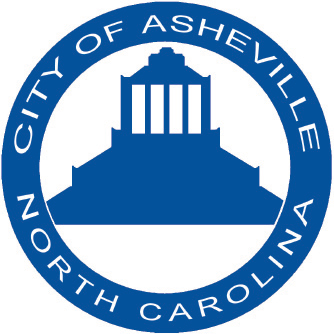Hoteliers and hotel opponents alike have waited since September 2019 for Asheville City Council to reach a decision about future lodging development within city limits. On Tuesday, Feb. 23, the countdown clock finally hits zero.
Asheville’s hotel moratorium will expire at midnight on Feb. 23. Earlier that evening, Council members will vote on what comes next: the adoption of a new system to streamline hotel proposals and reduce Council’s role in the process or something else entirely.
Following lengthy criticism from elected officials and community members at Council’s last meeting, Asheville’s planning and urban design department tweaked the proposed lodging development guidelines in an attempt to address major concerns.
The overall number of public benefit points required for a hotel to bypass Council review was increased by 40-60 from a previous minimum of 40-180 points, depending on hotel size and location. Developers are now required to get at least 50% of their points from contributions to Asheville’s yet-to-be-created reparations fund or affordable housing programs; the required monetary contributions for these options have also been raised, with a minimum contribution of $3,000 per room to earn 100 points.
The Hotel Overlay Map, designating where hotels could be built without Council approval, no longer includes properties that had been subject to urban renewal programs. In response to concerns raised by Council member Sage Turner about a lack of oversight on the proposed Joint Design Review Committee, which would review hotels in Council’s stead, elected officials will now appoint eight of the nine members from the Asheville Downtown and Riverfront Redevelopment commissions.
Discouraged by the plan on the table at Council’s Feb. 9 meeting, Turner told her colleagues she wasn’t opposed to extending the moratorium or returning to pre-moratorium conditional zoning requirements until they could agree on a solution. If the new system is accepted by a majority of Council, new hotel development could begin as soon as Wednesday, Feb. 24.
In other news
Members will also consider a legislative agenda outlining priorities to go before the North Carolina General Assembly in 2021. The list includes a change to the local occupancy tax distribution, the authority to establish a civilian oversight board for the Asheville Police Department and permission to hold a referendum on a quarter-cent sales tax supporting Asheville’s public transit system.
The city also wants the permanent authority to continue electronic meetings as it sees fit, an extension of emergency powers granted through the state’s COVID-19 state of emergency. And Council seeks clarification on when members can vote on items discussed in an electronic public hearing, which the city currently delays until the following regular meeting.
The agenda does not include a request to shift the Asheville City Board of Education to an elected body; the group is one of only two appointed school boards in the state. Council briefly considered asking for this change at its Jan. 26 meeting. At that time, Antanette Mosley opposed the move; Sheneika Smith and Sage Turner both advocated for community engagement before making such a decision. (Turner said she supported an elected board, as did Sandra Kilgore and Kim Roney, during a Council candidate forum on Feb. 5, 2020.)
Consent agenda and public comment
The consent agenda for the meeting contains five items, which will be approved as a package unless singled out for separate discussion. Highlights include the following resolutions:
- Initial resolutions to move forward with proposed Limited Obligation and Special Obligation Refunding Bonds. Council issued a $48 million limited obligation bond anticipation note in May 2018 to pay for improvements on Charlotte Street, transportation upgrades in the River Arts District and park facility light replacement. To refund the $34.9 million the city has drawn, refunding bonds need to be issued by April.
- A $50,000 contract extension to support the Code Purple homeless shelters run by Western Carolina Rescue Ministries.
- A resolution allowing City Manager Debra Campbell to use sole source procurement for specific products needed in the construction of the Broadway Public Safety Station and the Dr. Wesley Grant Sr. Southside Center. Items under consideration include the Mach Alert station alerting system used by the Asheville Fire Department and Verkada video security cameras used by the city’s Information Technology Services.
The full meeting agenda and supporting documents can be found at this link. Due to COVID-19, Council will meet remotely, and the meeting will be livestreamed through Asheville’s Public Engagement Hub.
Members of the public who wish to speak during the meeting must sign up in advance at this link or call 828-259-5900 no later than 9 a.m. on Tuesday, Feb. 23. City staff will then use the list of registered speakers to manage the speaker queue during the meeting.
Prerecorded voicemail messages can also be left at 855-925-2801, meeting code 2991; written comments can be sent to AshevilleCityCouncilFeb232021@PublicInput.com. Emails will be accepted for 24 hours after each public hearing.




Before you comment
The comments section is here to provide a platform for civil dialogue on the issues we face together as a local community. Xpress is committed to offering this platform for all voices, but when the tone of the discussion gets nasty or strays off topic, we believe many people choose not to participate. Xpress editors are determined to moderate comments to ensure a constructive interchange is maintained. All comments judged not to be in keeping with the spirit of civil discourse will be removed and repeat violators will be banned. See here for our terms of service. Thank you for being part of this effort to promote respectful discussion.